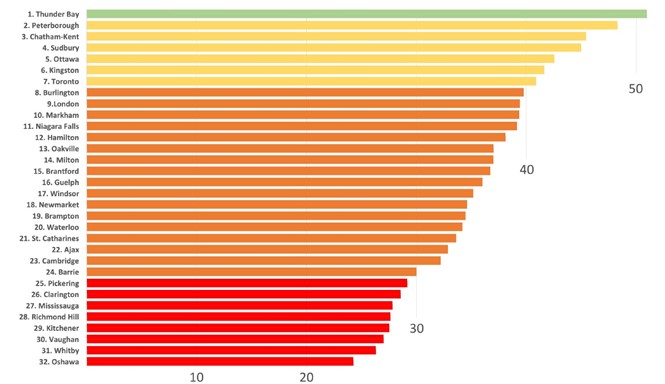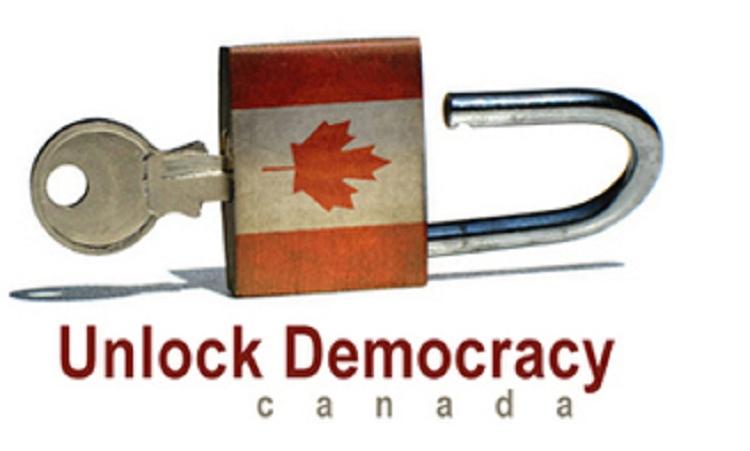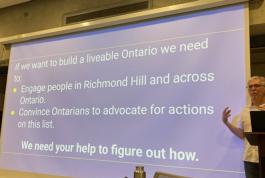This article was created by Paul Rose, a member of the Council Accountability Group of Richmond Hill.
Richmond Hill has placed dead last among Ontario’s largest thirty-two municipalities rated by a Municipal Democracy Index.
Out of a possible 150 points, Richmond Hill scored 38, the only municipality on the list whose total was under 40.
The index was compiled by Unlock Democracy Canada in collaboration with Armstrong Strategy Group and can be seen below.

Motivated by the thinking that “things you measure tend to improve”, the ranking was based on four sets of data:
- voter turnout
- gender balance on council
- racial diversity
- User Design Experience.
Communities with low voter turnout could suggest one or more of the following:
- that there is a lack of awareness and information about the general issues and/or candidates
- that there is an undervaluing of the importance of local government
- that there is a lack of choice
- that that there is a lack of faith in the system.
As can be seen in the chart below, Richmond Hill tied with Kitchener for 28th place, with only Vaughan, Whitby and Oshawa recording lower voter turnouts in the 2018 municipal election.
Measure 1 - Voter Turnout

The second data set looks at gender balance on councils. According to the 2016 census, Richmond Hill had over 5,000 more women than men. Yet despite this, there is only one female among nine council members. Richmond Hill placed 29th on this list; only Brantford, Windsor and Pickering had a lower percentage of women council members than Richmond Hill. As the index states, “any type of demographic distortion within an elected body is a symptom of larger problems.”
Measure 2 - Gender balance on City Council

The third measure examines the number of Black, Indigenous and People of Colour members of Council in comparison to the percentage of Black, Indigenous and People of Colour residents in the municipality. In an ideal setting, the ratio of the percentage of White members of Council would equal the percentage of White citizens in the municipality’s population. Again, Richmond Hill placed among the bottom of the municipalities here.
Though not the exact approach used by this index, it is interesting to note that a look at the 2016 census reveals that 57.6% of Richmond Hill’s population is made up of visible minorities (which calls into question the usefulness of the term “visible minority”), but only 22% of Richmond Hill Council is made up of visible minorities.
Measure 3 - Reflective Diversity on City Council

The fourth and final data set is the most complex. In measuring the User Design Experience, the Index investigates services the municipality provides citizens to help naviagate the system, how much participation citizens have into determining the budget, how transparent municipalities are in terms of the impact of lobbyists on the government, the degree to which municipalities subsidize campaign financing for those who are not wealthy, the use of ranked ballots in elections, the effectiveness of mailed election materials, the number of voting method options made available to citizens, the hospitality provided to citizens attending council meetings and the language used in referring to the head of government. Perhaps not surprisingly, Richmond Hill fared poorly again, placing tied for twenty-fifth among the thirty-two municipalities. The chart below shows the user experience score which is an attempt to calculate to what degree citizens are excluded from the democratic process.
Measure 4 - User Experience Design

So, what is the take away from all this?
It’s time that more Richmond Hill citizens became aware about issues facing the community and about the importance of local government in their lives. This should lead to a greater voter turnout. Richmond Hill needs to aim for greater gender balance and a diversity on council that reflects the diversity of the community. Finally, citizens need to demand that council stops erecting barriers to democratic participation and actively works to give citizens a greater role in decision making. We all have a role to play in restoring democracy to Richmond Hill!









